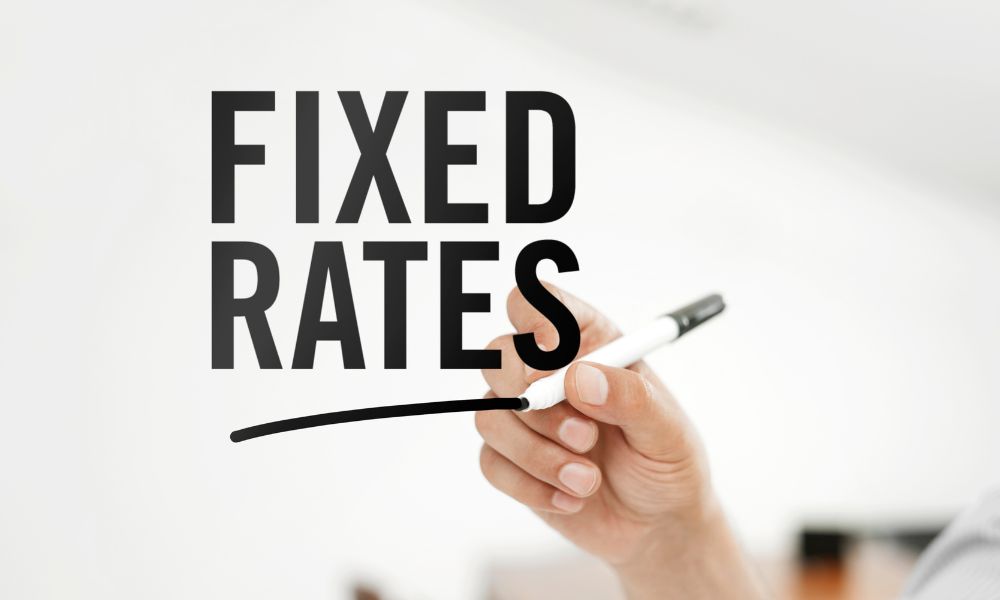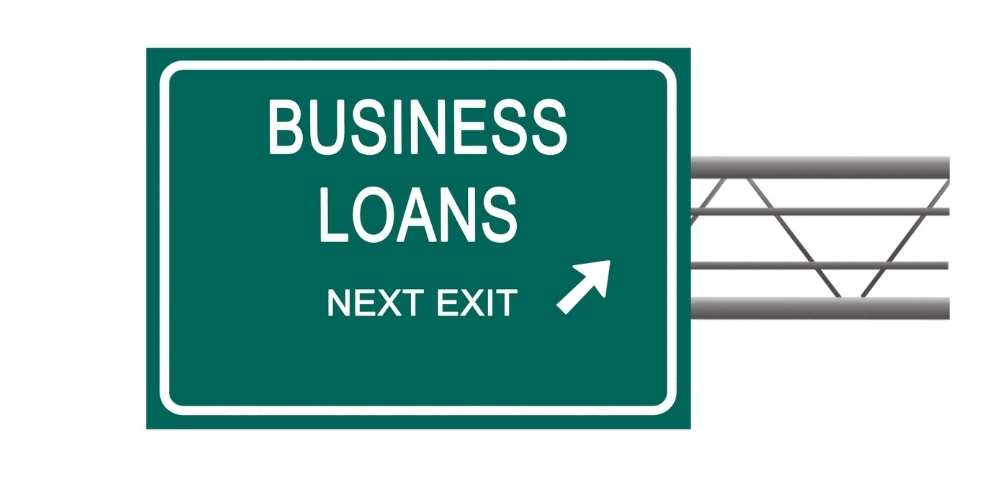Fixed interest rates for business loans can offer stability and predictability, but they also have certain drawbacks that businesses should carefully consider. In this article, we will explore the pros and cons of fixed interest rates for business loans to help you make an informed decision.
Fixed interest rates for business loans refer to loan agreements where the interest rate remains constant throughout the loan term. This means that the interest rate you start with will remain unchanged, regardless of fluctuations in the market.
Pros of fixed interest rates for business loans include stability and predictability. With a fixed rate, you can accurately budget and plan your finances, knowing exactly how much you need to allocate for loan repayments. This can provide peace of mind and help you manage your cash flow effectively. Fixed rates can protect you against interest rate volatility since your interest rate will not increase even if market rates rise.

However, there are also cons to consider. One major drawback is that fixed interest rates for business loans are typically higher initially compared to variable rates. This means that you may pay more in interest over the long term. Fixed rates may limit your opportunity for savings if market rates decrease. Furthermore, some loan agreements may impose penalties for early repayment, which can restrict your flexibility in paying off the loan sooner.
When choosing fixed interest rates for business loans, consider factors such as loan duration, the interest rate market outlook, and the flexibility of loan terms. Evaluating these factors will help you determine whether a fixed rate loan aligns with your business goals and financial circumstances.
By understanding the pros and cons of fixed interest rates for business loans, you can make an informed decision that suits the unique needs of your business.
Key takeaway:
- Stability and Predictability: Fixed interest rates for business loans provide stability and predictability for budgeting and financial planning purposes. Business owners can easily anticipate and plan for their loan repayments without the worry of fluctuating rates.
- Budgeting and Financial Planning: With fixed interest rates, businesses can accurately budget and plan their cash flow as they know the exact amount they need to repay each month. This allows for better financial planning and helps businesses avoid potential cash flow issues.
- Protection Against Interest Rate Volatility: Fixed interest rates shield businesses from potential increases in interest rates. This protects businesses from unexpected rises in loan repayments, providing financial stability and peace of mind.
What are Fixed Interest Rates for Business Loans?
Fixed interest rates for business loans are a type of interest rate that remains constant throughout the entire repayment period of the loan. These rates provide stability to borrowers, as they do not change regardless of market or economic fluctuations. One of the benefits of fixed interest rates is predictability – borrowers can accurately forecast their monthly payments, which eases budgeting and financial planning. Additionally, fixed rates offer protection to businesses by safeguarding them from potential increases in interest rates that could lead to higher loan repayments. These rates are typically set for a specific duration, usually ranging from one to five years, allowing businesses to plan their finances accordingly. Notably, a recent study by the Wall Street Journal revealed that businesses choosing fixed interest rate loans tend to have a more secure financial outlook compared to those opting for variable rates.
Pros of Fixed Interest Rates for Business Loans
If you’re considering a business loan, you might want to take a closer look at the pros of fixed interest rates. These advantages can provide stability, predictability, and protection against interest rate volatility. With fixed rates, you can have the peace of mind knowing exactly what to expect when it comes to budgeting and financial planning. Let’s dive into the details of these benefits and how they can positively impact your business’s financial strategy.
1. Stability and Predictability
- Fixed interest rates provide stability and predictability for business loans. This stability and predictability give businesses the ability to plan their budget more accurately as they know the exact amount they need to allocate for loan payments.
- With a fixed rate, the interest percentage remains the same throughout the loan term. This stability and predictability eliminate the uncertainty of fluctuating interest rates, which can greatly affect monthly payments.
- Small business owners, especially those with limited cash flow, can benefit from the stability and predictability offered by fixed interest rates.
Fact: According to a study, businesses that opt for fixed interest rates have a higher likelihood of making on-time payments compared to those with variable interest rates.

2. Budgeting and Financial Planning
When it comes to budgeting and financial planning for business loans with fixed interest rates, there are several important factors to consider:
- Predictable Payments: One of the main advantages of fixed interest rates is that they provide stability and predictability. By incorporating budgeting and financial planning, businesses can easily plan and budget for their expenses as the monthly payments will remain the same throughout the loan term.
- Long-term Planning: Fixed interest rates allow businesses to plan their finances over the long term. By accurately forecasting future cash flows, businesses can determine the feasibility of various projects or investments, thereby incorporating budgeting and financial planning.
- Protection Against Rate Increases: By choosing a fixed interest rate, businesses can protect themselves against interest rate volatility. This ensures that the fixed rate loan remains unaffected even if interest rates rise in the future, providing financial stability and peace of mind.
- Certainty and Control: With fixed interest rates, businesses can have a clear understanding of their borrowing costs. This enables better decision-making by incorporating budgeting and financial planning, as business owners can evaluate the cost of borrowing and factor it into their financial plans.
- Simplification of Loan Management: Fixed interest rates make loan management easier by eliminating the need to constantly monitor and adjust payments based on fluctuating interest rates. This simplifies financial tracking and reduces administrative burden, contributing to efficient budgeting and financial planning.
3. Protection Against Interest Rate Volatility
Protection against interest rate volatility is a significant advantage offered by fixed interest rates for business loans. Here are some reasons why:
- Stability: Fixed interest rates provide stability to borrowers by ensuring that their monthly loan payments remain unchanged throughout the loan term. This enables businesses to plan their finances more effectively and shields them from unexpected increases in interest rates.
- Predictability: With fixed interest rates, businesses can accurately forecast their future loan payments, making budgeting and fund allocation easier. This enhances overall financial planning and reduces uncertainty.
- Financial security: Opting for a fixed interest rate protects businesses against potential fluctuations in interest rates. This guarantees consistent loan payments, safeguarding their bottom line.
By opting for fixed interest rates for business loans, businesses can protect themselves from the risks associated with interest rate volatility and maintain a higher level of financial stability.

Cons of Fixed Interest Rates for Business Loans
When it comes to fixed interest rates for business loans, there are certain drawbacks that every entrepreneur should be aware of. In this section, we’ll uncover the cons of fixed interest rates and shed light on three key aspects: higher initial interest rates, limited opportunities for savings, and the potential for early repayment penalties. Brace yourself for a deeper dive into the less favorable side of fixed interest rates and how they can affect your business’s financial landscape.
1. Higher Initial Interest Rates
The sub-topic “1. Higher Initial Interest Rates” lays out the potential drawback of fixed interest rates for business loans. Here are some important points to keep in mind:
- Higher costs: Business loans with fixed interest rates typically come with higher initial interest rates when compared to variable rate loans. As a result, the initial borrowing costs may be higher.
- Predictable payments: Despite the higher initial rates, fixed interest rates provide stability and predictability. Borrowers can create budgets and plan their finances without concerns about fluctuating interest rates.
- Protection against rate increases: Fixed interest rates shield businesses from interest rate volatility. This can prove advantageous if interest rates increase in the future.
Though higher initial interest rates may pose a disadvantage, the stability and predictability afforded by fixed interest rates can outweigh this drawback. It is crucial for small business owners to carefully evaluate their financial objectives and preferences prior to deciding between fixed and variable rate loans. Assessing factors such as loan duration, the outlook of the interest rate market, and flexibility in loan terms will assist businesses in making an informed decision.
2. Limited Opportunity for Savings
When considering fixed interest rates for business loans, it is important to be aware of the limitations:
- Higher overall cost: Fixed interest rates may initially be higher compared to variable rates, resulting in potentially paying more over the duration of the loan.
- No benefit from rate decreases: If interest rates decrease during the term of your loan, you will not be able to take advantage of the savings.
- No flexibility for early repayment: With fixed interest rates, there may be penalties if you decide to repay the loan earlier than the agreed-upon term.
To make an informed decision about fixed interest rates for business loans, it is essential to carefully consider these limitations and evaluate how they align with your business’s financial goals and needs.

3. Potential for Early Repayment Penalties
When choosing fixed interest rates for business loans, it is important to consider the potential for early repayment penalties. Here are some key points to keep in mind:
- Penalty fees: Some lenders may impose penalties if you pay off your loan before the agreed-upon term. These fees can either be a percentage of the remaining loan balance or a fixed amount.
- Impact on cash flow: Early repayment penalties can have an effect on your cash flow and financial planning, especially if you anticipate paying off the loan early. It is important to consider whether the potential penalties align with your business goals and financial situation.
- Penalty conditions: To fully understand the specific penalty conditions, it is important to thoroughly read the loan agreement. Some lenders may waive penalties after a certain period or charge lower penalties for early repayment.
- Loan duration: If you are considering early repayment, it is advisable to choose a loan with a shorter term to minimize the potential for penalties. Longer-term loans may have higher penalties due to the extended interest accrual period.
- Loan flexibility: Some fixed-rate loans provide more flexibility in terms of early repayment without penalties. It is worth considering lenders that offer options for prepayment or refinancing without incurring additional fees.
Understanding the potential for early repayment penalties is crucial when selecting fixed interest rates for business loans. By assessing your business’s financial situation, considering loan duration, and reviewing the loan terms, you can mitigate the risks associated with early repayment.
Factors to Consider when Choosing Fixed Interest Rates for Business Loans
Considering fixed interest rates for business loans? Dive into the factors that should be on your radar. We’ll uncover the impact of loan duration, the significance of the interest rate market outlook, and the role of flexibility in loan terms. Armed with this knowledge, you’ll be well-equipped to make an informed decision that suits your business’s financial goals. So, let’s explore the key considerations when opting for fixed interest rates in the realm of business loans.

1. Loan Duration
When considering fixed interest rates for business loans, one important factor to consider is loan duration. The duration of the loan refers to the length of time over which the loan will be repaid. This can vary depending on the specific needs and circumstances of the business.
| Loan Duration |
| A shorter loan duration, such as 1-3 years, may be suitable for businesses looking for quick financing for short-term projects or to cover immediate expenses. |
| A medium-term loan, typically ranging from 3-7 years, can provide more flexibility and stability for businesses seeking funding for growth or investment opportunities. |
| Long-term loans, extending beyond 7 years, are often utilized for substantial investments like real estate or large-scale expansion plans. |
| The loan duration determines the repayment period and affects the total interest paid over time. Shorter-term loans generally have higher monthly payments but lower total interest costs, while longer-term loans may have lower monthly payments but higher overall interest expenses. |
When deciding on the loan duration, businesses should carefully evaluate their financial situation, projected cash flow, and future growth plans. It’s important to choose a loan duration that aligns with the specific needs and goals of the business, ensuring that the repayment terms are manageable and conducive to the company’s success.
2. Interest Rate Market Outlook
The interest rate market outlook is a crucial factor to consider when choosing fixed interest rates for business loans. Understanding the current and future trends of interest rates can help businesses make informed decisions about their loans.
| Factors | Implications |
|---|---|
| Increasing interest rates | If the interest rate market outlook suggests that interest rates will rise in the future, it may be beneficial to secure a fixed interest rate loan. This will protect businesses from higher interest expenses and provide stability in their loan payments. |
| Decreasing interest rates | On the other hand, if the interest rate market outlook predicts a decline in interest rates, businesses may want to reconsider fixed interest rates. They may miss out on potential savings if they lock in a higher interest rate while the market rates are decreasing. |
| Stable interest rates | If the interest rate market outlook indicates stability with little change expected in the near future, businesses can confidently choose fixed interest rates. They can enjoy the predictability of consistent loan payments without worrying about fluctuations in interest rates. |
It’s important for businesses to monitor interest rate market outlooks and consult with financial experts to make informed decisions about fixed interest rates for their loans. By considering the interest rate market outlook, businesses can choose the most suitable loan option for their financial needs and goals.

3. Flexibility in Loan Terms
Flexibility in Loan Terms:
- When considering fixed interest rates for business loans, it’s essential to assess the flexibility in loan terms. Look for lenders that offer customizable repayment options based on your business’s financial situation. This could include the ability to choose a repayment schedule that aligns with your cash flow, such as monthly, quarterly, or annual payments.
- Flexibility in loan terms also includes the length of the loan term. Different lenders may offer varying terms, so evaluate options that allow you to select a term that best suits your business’s goals and financial position. A shorter-term may result in higher monthly payments but can help you save on interest expenses overall.
- Another crucial aspect of flexibility is the ability to make early repayments without incurring penalties or fees. This can be advantageous if your business experiences a sudden influx of cash and you want to pay off the loan sooner. Look for lenders that provide this flexibility to save on interest costs and reduce the overall burden of the loan.
- As your business evolves, it’s important to have the option to renew or refinance your loan. Check if the lender provides the flexibility to extend or modify your loan terms when the initial loan period ends. This can be beneficial if you need additional funds or if you want to take advantage of more favorable market conditions.
- Assess the collateral requirements associated with the loan. Lenders may have certain restrictions or allowances for the types of collateral accepted. Having flexibility in the collateral requirements can be advantageous, especially if you have specific assets that you prefer to use as collateral.
Some Facts About the Pros and Cons of Fixed Interest Rates for Business Loans:
- ✅ Fixed interest rates provide borrowers with predictability and stability throughout the loan term. (Source: Funding Circle)
- ✅ With fixed interest rates, monthly payments remain consistent and are easier to budget for. (Source: Funding Circle)
- ✅ Fixed interest rates may be lower than variable rates, making them an attractive option for business owners. (Source: LendThrive)
- ✅ However, fixed interest rates can be higher than variable rates, potentially resulting in higher overall interest costs. (Source: LendThrive)
- ✅ Choosing a fixed interest rate loan eliminates the risk of monthly payment increases due to fluctuating interest rates. (Source: Investopedia)
Frequently Asked Questions
Question 1: What are the pros of fixed interest rates for business loans?
Answer: Fixed interest rates provide several advantages for business loans. They offer predictability, as monthly payments remain the same throughout the loan term. This makes budgeting easier for business owners, as they can plan their monthly expenditures with certainty. Additionally, fixed interest rates can be lower than variable rates, providing businesses with potentially more favorable financing terms.
Question 2: Are there any cons to choosing fixed interest rates for business loans?
Answer: While fixed interest rates offer stability, there are some disadvantages to consider. Firstly, if market rates decline after securing a fixed rate loan, borrowers miss out on the opportunity to benefit from lower interest rates. Additionally, fixed interest rates can be higher than variable rates, especially during periods of declining rates. Lastly, refinancing a loan with a fixed interest rate can be more challenging and costly compared to adjustable rates.
Question 3: Who should consider opting for fixed interest rates for their small business loans?
Answer: Fixed interest rates are suitable for business owners who value stability and want to avoid surprises in the loan process. Established businesses with stable cash flow often prefer fixed rates as they provide a sense of predictability. Additionally, business owners who are looking for more straightforward budgeting and want to know their total interest costs throughout the loan term may benefit from fixed interest rates.
Question 4: Can fixed interest rates help business owners save money?
Answer: Fixed interest rates can potentially save business owners money in certain situations. Knowing the total interest cost upfront allows borrowers to evaluate if the loan is worth it and estimate tax benefits. Additionally, during periods of low interest rates, securing a fixed rate loan can be advantageous as it locks in a rate that won’t increase even if market rates rise in the future. This can result in long-term savings on interest payments.
Question 5: Are fixed interest rates available for different types of business loans?
Answer: Yes, fixed interest rates are available for various types of business loans. Whether you need a small business loan, a car loan, or even a debt consolidation loan, you can often choose between fixed and variable interest rates. It is important to review the terms and options provided by lenders to determine which type of loan best suits your needs and financial situation.
Question 6: How can on-time payments affect fixed interest rates for business loans?
Answer: On-time payments can have a positive impact on fixed interest rates for business loans, depending on the lender. Some lenders offer programs, such as the Rate Reduction Rewards program, that reduce the interest rate as a perk for borrowers who consistently make their payments on time. This can provide additional incentives to maintain good payment habits and lower the overall cost of the loan.


